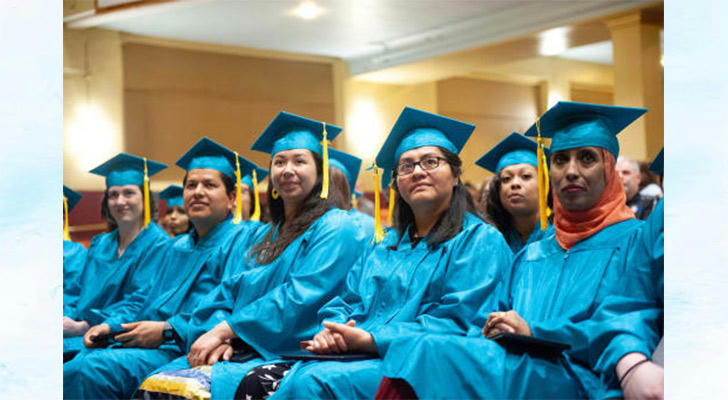Life Has No Finish Line, Learning Never Stops
Adult education refers to educational activities designed for adults. Unlike traditional school education, adult education focuses more on individual development needs, offering more flexible and diverse content and more self-directed learning methods.
Characteristics of Adult Education
•Purpose-Driven: Adult learners often have clear objectives, such as improving job skills, obtaining academic qualifications, or pursuing personal interests.
•High Autonomy: Adult learners place a greater emphasis on self-directed learning, allowing them to plan their study schedules based on their time and pace.
•Rich Diversity: Adult education comes in various forms, including in-person classes, distance learning, and online courses, covering a wide range of fields.
•Strong Practical Focus: Adult education emphasizes the combination of theory and practice, stressing the importance of applying what is learned.

Importance of Adult Education
•Lifelong Learning: In the knowledge economy era, lifelong learning has become an inevitable trend for social development. Adult education provides continuous learning opportunities, helping individuals adapt to social changes.
•Enhanced Competitiveness: Through adult education, people can continuously update their knowledge and skills, improving their competitiveness in the job market.
•Personal Development: Adult education helps individuals realize their self-worth and enrich their life experiences.
•Social Progress: A well-educated adult population is crucial for social progress.
Forms of Adult Education
•Academic Education: Includes adult college entrance exams, self-study exams, etc., aimed at obtaining academic qualifications.
•Vocational Training: Training focused on the skills required for specific jobs, such as professional certification and skill enhancement.
•Distance Education: Learning conducted through the internet, television, and other media, free from time and space constraints.
•Non-Academic Education: Includes interest classes, training courses, etc., to meet diverse learning needs.

Challenges in Adult Education
•Maintaining Learning Motivation: Adult learners often face multiple pressures from work, family, etc., making it challenging to sustain long-term motivation.
•Time Management: Adult learners have limited time, so arranging study time effectively can be difficult.
•Access to Learning Resources: Acquiring high-quality learning resources is another challenge adult learners face.
Case Study: Workplace Etiquette Training for a Professional Woman
Lily is a middle manager at a foreign company. She sometimes feels awkward in business settings due to a lack of knowledge about workplace etiquette. To enhance her professional image, Lily enrolled in a workplace etiquette training course. In the course, she learned about business attire, communication, and social skills. Through the training, Lily not only improved her professional image but also boosted her confidence, becoming more adept in her work.
This case illustrates the important role adult education courses play in enhancing workplace competitiveness and personal confidence.

Future Outlook
As society develops, adult education will become increasingly diverse, personalized, and intelligent. The application of new technologies such as artificial intelligence and big data will bring new opportunities and challenges to adult education.
Conclusion
Adult education is a vital part of social development. It provides lifelong learning opportunities, contributing to both personal growth and social progress. As society continues to advance, adult education will play an increasingly important role.

